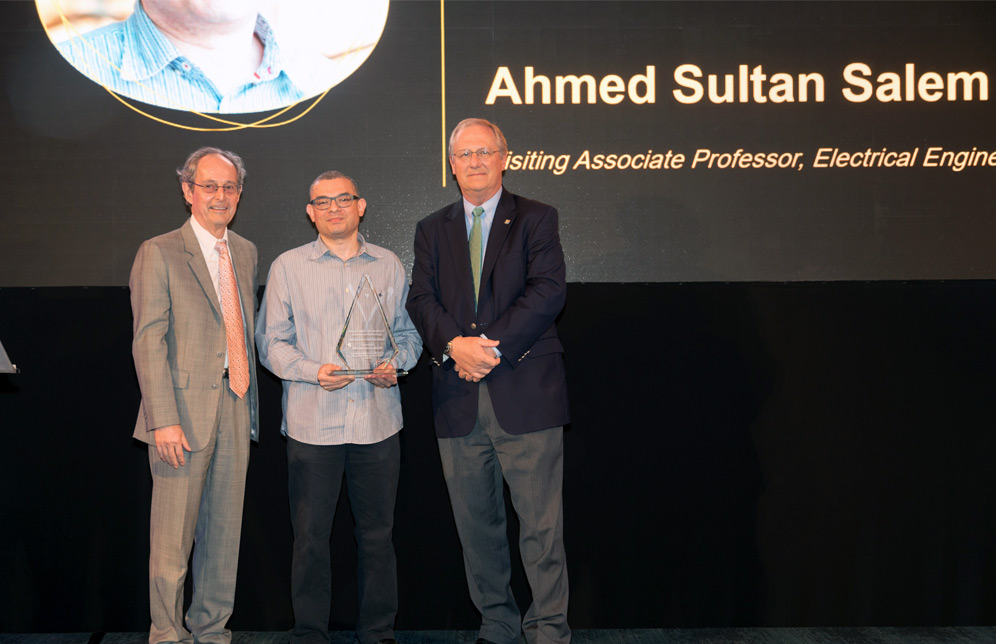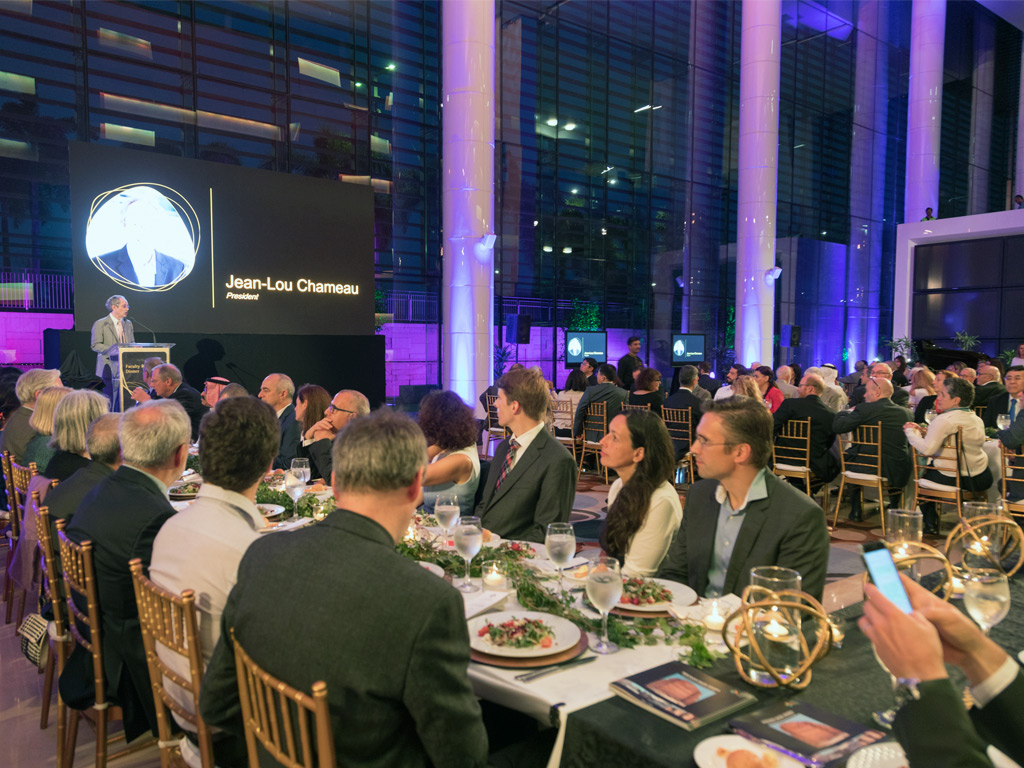Salem wins 2017 Distinguished Teaching Award

The inaugural KAUST Distinguished Teaching Award recipient Ahmed Sultan Salem (center) with KAUST President Jean-Lou Chameau (left) and Vice President for Academic Affairs James Calvin.
Ahmed Sultan Salem, visiting associate professor of electrical engineering, has been awarded the 2017 Distinguished Teaching Award for his exceptional dedication to developing top scientific talent.
"I believe that teaching is not a one-way process," Salem said. "Trying to explain and share knowledge improves one's own understanding of the subject. From my teaching experience, I realized that a teacher learns significantly from her or his students' inquiries and insights. This has a double impact. First, it helps advance the teaching process itself, making it a positive feedback endeavor in a state of continual improvement. Second, it helps in one's research—the other crucial component of an academic career."
"Professor Salem's passion and dedication to his graduate students extends beyond the classroom and into their daily lives. This recognition attests to his exceptional commitment to teaching and mentorship," said Professor James Calvin, vice president for academic affairs.

KAUST President Jean-Lou Chameau addresses attendees at the recent 2017 Faculty Recognition Dinner held in the Auditorium (bldg. 20).
Salem was one of six finalists nominated by the divisions for the inaugural edition of the KAUST Distinguished Teaching Award. The other nominees were:
- Husam Alshareef - Professor of Material Science and Engineering
- Bernard Ghanem - Assistant Professor of Electrical Engineering
- Kuo-Wei "Andy" Huang - Associate Professor of Chemical Science
- Manuel Aranda Lastra - Assistant Professor of Marine Science
- Carlo Liberale - Assistant Professor of Bioscience
About Ahmed Sultan Salem
Ahmed Sultan Salem received a Ph.D. in electrical engineering (EE) from Stanford University in Palo Alto, California, in 2007. He has been a visiting faculty member in the EE program at KAUST since August of 2011. Salem teaches a broad spectrum of EE and applied mathematics courses ranging from basic 100-level preparatory courses to advanced 300-level Ph.D. courses. His current research interests are energy harvesting, cognitive radio technology, dynamic spectrum access, cooperative communications, distributed and sequential detection, physical layer-based secrecy and OFDM for optical communications.
"I believe that true comprehension and deep learning is often acquired via working through well-designed problems and struggling with rigorous and intellectually stimulating assignments," said Salem. "And I view the opportunity to teach and to engage with students as the most rewarding part of my career and professional life."
Related stories:

